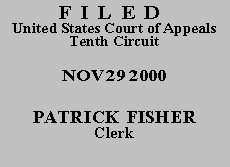

Doty Lyn Brown appeals the district court's dismissal of his 42 U.S.C. § 1983 action pursuant to 42 U.S.C. § 1997e(a)(1) and 28 U.S.C. § 1915(e)(2)(B). We affirm.
Brown filed his civil rights complaint on February 3, 1999. The magistrate court interpreted the complaint as raising eleven issues:
(1) On June 18, 1998, prison officials conducted a "warrantless search" of Brown's cell and found heroin in a deodorant container; (2) Prison officials refused to allow Brown to witness the search and Brown was not shown the heroin; (3) Brown was required to take a urine test for drug use, which came back negative; (4) Brown was placed on TRO without adequate due process; (5) Brown was eventually improperly moved to "extreme maximum custody" because of heroin possession; (6) the hearing officer refused to prove heroin was actually found in Brown's cell; (7) ALJ Robinson failed to respond to Brown's appeal for at least "forty to fifty days"; (8) the grievance system at the prison is not certified with the Federal Bureau of Prisons; (9) while in solitary confinement for 18 days, Brown was served two cold meals per day, and his "toilet function was turned off for several days"; (10) the Utah Board of Pardons was improperly informed of his "conviction" and "is able to use" the information to lengthen his time served"; and (11) Brown improperly lost his prison job, his classification level was changed, his visitation privileges were curtailed, he can no longer take college courses, and he only has three hours out of his cell per day.
Doc. 14 at 2-3. The magistrate ordered Brown "to provide a certified statement from the Grievance Coordinators at the facilities in question that he has, in fact, fully completed all administrative remedies available to him on all claims alleged in his complaint." Doc. 11. A grievance coordinator certified that Brown had exhausted administrative remedies for claims 1, 4, 5, 6, and 7. The magistrate recommended that those claims be dismissed for failure to state a claim under § 1915(e)(2)(B) and that the remaining claims be dismissed for failure to exhaust under 42 U.S.C. § 1997d(a)(1).
Brown filed timely objections to the magistrate's report and recommendation and requested leave to amend his complaint "with regard to alleged deceptive actions of defendants which violated Plaintiff's Fourth and Eighth Amendment Rights." Doc. 19 at 6. The district court adopted the magistrate's report and recommendation and dismissed the action with prejudice.
On appeal, Brown argues the district court "abused its discretion in not allowing the complaint to be amended," Br. at 18; and "erred in not giving [him] a fair chance to exhaust grievance procedures." Id. at 19. We apply a de novo standard of review. See Perkins v. Kan. Dep't of Corrections, 165 F.3d 803, 806 (10th Cir. 1999).
Under Section 1915, "[d]ismissal of a pro se complaint for failure to state a claim is proper only where it is obvious that the plaintiff cannot prevail on the facts he has alleged and it would be futile to give him an opportunity to amend." Id. Brown argues that "through discovery [he] could prove the needed facts and he could have amended his complaint" to state a Fourth Amendment "warrantless search" claim. Br. at 18. "[T]he Fourth Amendment proscription against unreasonable searches does not apply within the confines of the prison cell." Hudson v. Palmer, 468 U.S. 517, 526 (1984). Amendment of this claim would be futile.
As regards the unexhausted claims, Brown contends the district court erred "in not giving the Plaintiff a fair chance to exhaust grievance procedures." Br. at 19. On February 25, 2000, the court ordered Brown to provide a certified statement that all administrative remedies had been exhausted as to all claims. On March 27, 2000, Brown requested a ninety-day extension to comply because "there seems to be a problem in that a record of one of the Plaintiff's grievances cannot be found." Doc. 12 at 1. Brown also submitted a letter from a grievance coordinator with his request. The letter stated Brown had administratively exhausted claims 1, 4, 5, 6, and 7, but that "[t]here is no record of a grievance (the available administrative remedy for complaints about conditions of confinement, alleged policy violations, or collateral consequences of a disciplinary conviction) concerning the issues outlined in paragraphs 2, 3, 8, 9, 10, or 11." Id. at 3. On April 12, 2000, the magistrate granted Brown a thirty-day extension "to submit the missing grievance." Doc. 13. Brown was warned that if he did not submit the missing grievance within the extended period, the court would rule on the exhaustion issue.
In effect, Brown argues the thirty-day additional time period did not provide him enough time to exhaust because the absolute minimum number of days required to file a grievance and exhaust administrative remedies is forty-nine days. With respect to claims 2, 3, 8, 9, 10, and 11, the letter from the grievance coordinator informed Brown that "[t]he time frame for submitting a grievance on these issues has expired." Doc. 12 at 3. Even if the magistrate had granted Brown the requested ninety days, such an extension would have been futile.
AFFIRMED. Brown is reminded of his obligation to continue making partial payments of filing fees as ordered until the fees are paid in full. The mandate shall issue forthwith.
Entered for the Court
Mary Beck Briscoe
Circuit Judge
*.This order and judgment is not binding precedent, except under the doctrines of law of the case, res judicata, and collateral estoppel. The court generally disfavors the citation of orders and judgments; nevertheless, an order and judgment may be cited under the terms and conditions of 10th Cir. R. 36.3.